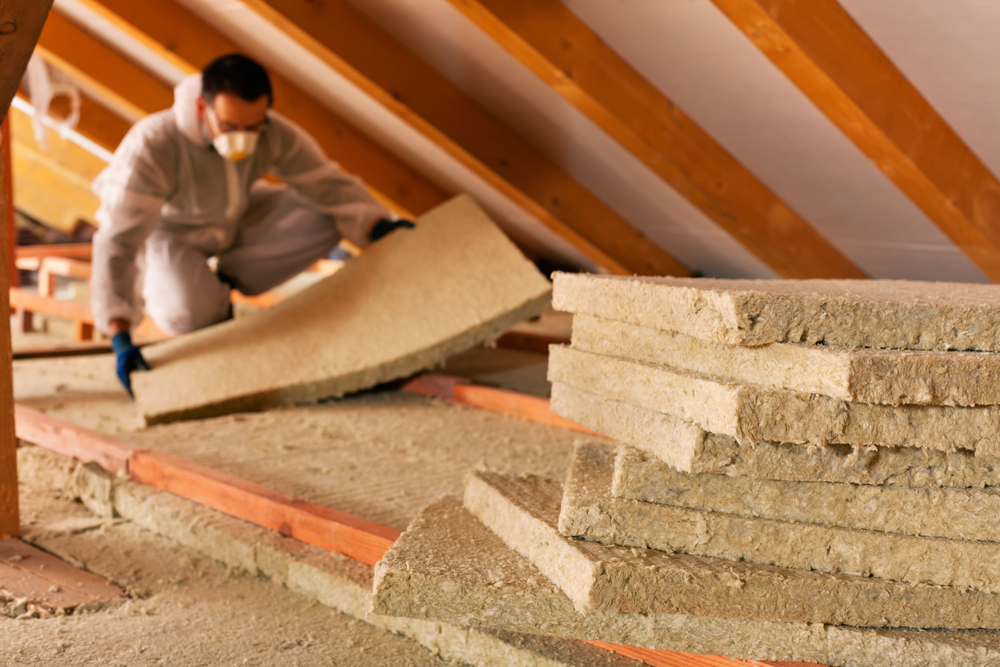
Although mineral wool has been around for decades, it’s highly overshadowed by fiberglass insulation. However, mineral wool insulation is rising in popularity because of the benefits it offers.
If you’re looking to replace the insulation in your home, it’s a good idea to learn more about mineral wool insulation and the advantages it brings. This is because mineral wool has some significant benefits when compared to other types of insulation.
What Is Mineral Wool Insulation?
Mineral wool is fiber-based loose-fill insulation. Although it looks similar to fiberglass insulation, mineral wool is slightly stiffer and denser.
There are two primary types of mineral wool insulation. The first type is rock mineral wool insulation. This is made from natural stone fibers, such as molten basalt or diabase.
The second type of mineral wool insulation is made from spinning slag. Each type of mineral wool insulation can be used for an array of home insulation purposes, including use in roofs, attics, walls, ceilings, and floors.
Benefits of Mineral Wool Insulation
Now that you understand what mineral wool insulation is, here are some of the benefits it provides.
1. Thermal Insulation
Mineral wool insulation provides enhanced thermal insulation. As such, mineral wool can keep your home from gaining or losing heat through the walls and roof.
2. Durability
Mineral wool is also an extremely resilient insulation material. In fact, the insulation value (R-value) of mineral wool doesn’t change over time. While other types of insulation will degrade over time, mineral wool remains unchanged.
3. Energy Efficiency
Since mineral wool provides excellent thermal insulation and doesn’t degrade over time, it offers significant energy efficiency benefits. When your building keeps the heat or cool air that it creates through the HVAC system, your units won’t have to work as hard to maintain a steady temperature. In turn, this can reduce your utility bills.
4. Fire Safety
When it comes to fire safety, mineral wool simply outperforms other types of insulation. Glass and rock mineral wool can withstand temperatures as high as 1,800 degrees Fahrenheit (1,000 degrees Celsius).
Mineral wool can also help to protect your property from the spread of fire. Mineral wool won’t burn or release smoke or toxic gasses when exposed to significant heat, either.
5. Noise Reduction
Another benefit of mineral wool insulation is that it can improve the acoustic performance of your property. This makes it an excellent solution for homeowners that reside in noisy areas.
A Comprehensive Home Improvement Solution
As you can see, mineral wool provides a variety of benefits that aren’t available with other types of insulation. From fire safety and noise reduction to improved air quality and thermal insulation, mineral wool keeps your home regulated and comfortable.
Mineral wool is also easier to install and is naturally moisture resistant. However, it’s important to note that mineral wool is about 10 percent more expensive than fiberglass insulation options.
To learn more about mineral wool insulation, contact experienced insulation contractors in St. Johns.

